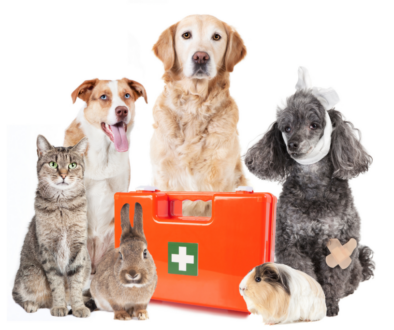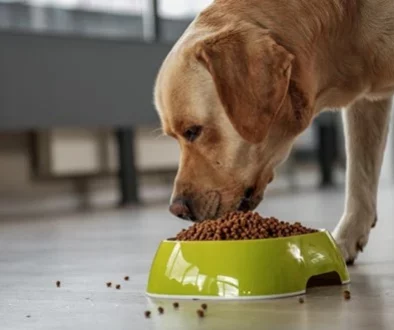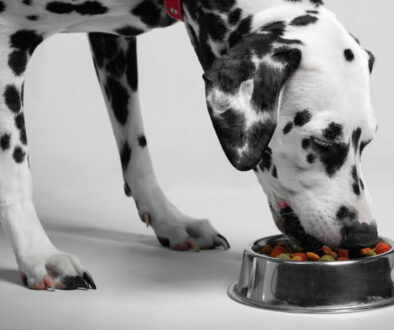Why Pet Vaccinations Are Essential?
Welcoming a furry friend into our lives brings immense joy and companionship. As responsible pet owners, it is our duty to take care of their health and well-being. One vital aspect of pet care that should never be overlooked is vaccinations. In this article, we will dive into the world of pet vaccinations, explore their significance, debunk common myths, and provide you with the necessary knowledge to keep your beloved pet safe and protected.
The Importance of Pet Vaccinations
Pet vaccinations serve as a crucial line of defense against potentially life-threatening diseases. They allow your pet’s immune system to develop the necessary antibodies to combat harmful pathogens, ensuring their overall health and longevity. Here’s why pet vaccinations are essential:
Preventing Deadly Diseases
Just like humans, pets are susceptible to numerous infectious diseases that can wreak havoc on their health. Vaccines have revolutionized the pet care industry, effectively preventing the spread of these diseases. By vaccinating your pet, you protect them from illnesses such as:
- Canine Distemper
- Rabies
- Parvovirus
- Feline Leukemia
- Kennel Cough
- Feline Immunodeficiency Virus (FIV)
Protecting the Community
Pet vaccinations not only safeguard your furry friend but also contribute to the overall health of your community. These preventive measures ensure that potential disease outbreaks are minimized, maintaining a safe and healthy environment for both pets and humans.

Cost-Effective Future Investment
The cost of vaccines is significantly lower than the cost of treating diseases in pets. Routine vaccinations are a proactive approach that can save you from hefty medical bills down the road. By investing in your pet’s health today, you can avoid expensive treatments and potential tragedy tomorrow.
Dispelling Common Myths
There are several misconceptions surrounding pet vaccinations. Let’s debunk these myths and differentiate fact from fiction:
Vaccines Cause Autism in Pets
Fact: There is no scientific evidence to support the claim that pet vaccinations cause autism. Vaccines are thoroughly tested for safety and efficacy before they are administered to pets.
My Indoor Pet Doesn’t Require Vaccinations
Fact: Even if your pet spends the majority of their time indoors, they can still be exposed to harmful diseases. Many viruses and bacteria can enter your home through various sources, including open windows, visitors, or even on your shoes. Vaccinating your pet ensures they have a robust immune system to fend off potential threats.
One-Size-Fits-All Vaccinations
Fact: Each pet has different needs, depending on factors such as age, breed, lifestyle, and environment. Vaccinations should be tailored to meet the specific requirements of your pet. Consult with your veterinarian to determine the appropriate vaccines for your furry friend.
Essential Vaccines for Your Pet
Now that we understand the significance of pet vaccinations let’s delve into the essential vaccines your furry companion should receive:
Canine Vaccinations
- Distemper: Protects against canine distemper, a viral disease that affects the respiratory, gastrointestinal, and neurological systems.
- Rabies: A mandatory vaccine in most states, as it protects against the deadly rabies virus.
- Parvovirus: Prevents parvoviral enteritis, a highly contagious viral disease that causes severe gastrointestinal distress in dogs.
- Bordetella: Protects against kennel cough, a highly contagious respiratory infection.
- Leptospirosis: Prevents a bacterial infection that affects the liver and kidneys in dogs.
Feline Vaccinations
- Feline Distemper (FVRCP): Protects against feline viral rhinotracheitis, calicivirus, and panleukopenia.
- Rabies: Administered to protect cats against the deadly rabies virus.
- Feline Leukemia Virus (FeLV): Recommended for cats that spend time outdoors or live with FeLV-positive cats.
The Vaccination Process
As a responsible pet owner, it is crucial to understand what to expect during the vaccination process:
Consultation with Veterinarian
Schedule an appointment with your veterinarian to discuss your pet’s vaccination requirements. Your vet will conduct a thorough examination and tailor the vaccination plan according to your pet’s specific needs.
Vaccination Administration
During the vaccination process, your veterinarian will administer the necessary vaccines. They will explain any potential side effects and answer any questions you may have.
Follow-Up Vaccinations
Some vaccines require multiple doses for optimal protection. Be sure to adhere to the recommended vaccination schedule provided by your veterinarian. Regular booster shots are necessary to maintain your pet’s immunity.

Frequently Asked Questions: Pet Vaccinations
Let’s address some commonly asked questions about pet vaccinations:
Are there any side effects of pet vaccinations?
Like any medical intervention, pet vaccinations may have minimal side effects such as mild fever, lethargy, or localized swelling. These symptoms are generally temporary and resolve on their own.
How often should I vaccinate my pet?
The frequency of vaccinations may vary depending on factors such as age, lifestyle, and health status. Your veterinarian will guide you regarding the ideal vaccination schedule for your pet.
Are pet vaccinations expensive?
Pet vaccinations are a cost-effective preventive measure compared to the potential costs of treating diseases. Furthermore, many pet insurance plans to cover a portion or the full cost of vaccinations.
At what age should I start vaccinating my pet?
The age at which you should start vaccinating your pet depends on various factors, including the species and breed. Generally, puppies and kittens receive their first vaccines when they are around 6 to 8 weeks old, followed by a series of booster shots. Consult with your veterinarian to determine the appropriate timing for your pet’s vaccinations.
Can my pet have an adverse reaction to vaccines?
While rare, some pets may have adverse reactions to vaccines. These reactions can range from mild discomfort to severe allergic reactions. Your veterinarian will closely monitor your pet during the vaccination process to minimize the risk of adverse reactions. If you notice any concerning symptoms after vaccinations, consult with your veterinarian immediately.
How long do the effects of pet vaccinations last?
The duration of vaccine effectiveness varies depending on the specific vaccine and the disease it protects against. Some vaccines provide lifelong immunity, while others require regular booster shots to maintain protection. Your veterinarian will provide you with a vaccination schedule that outlines when your pet should receive booster shots for optimal protection.
Can my pet receive vaccinations if they are pregnant or nursing?
It is generally not recommended to administer vaccines to pregnant or nursing pets, as their immune systems may be compromised. However, certain vaccines may be considered safe and necessary in certain situations. Consult with your veterinarian to assess the benefits and risks of vaccinating your pregnant or nursing pet.
Can I skip certain vaccines for my pet?
Each vaccine serves a specific purpose in protecting your pet’s health. It is generally not recommended to skip any vaccines unless there are specific medical reasons. Vaccines are carefully chosen to provide broad protection against significant diseases. Discuss any concerns or questions you may have with your veterinarian to ensure your pet receives the necessary vaccines.
Conclusion
Pet vaccinations play an indispensable role in ensuring the health and well-being of your furry companion. By investing in preventive care, you are not only protecting your pet but also contributing to a healthier community. Consult with your veterinarian, adhere to the recommended vaccination schedule, and provide your pet with a lifetime of happiness and protection. Remember, a little prick today can save a life tomorrow.
So, don’t delay—prioritize your pet’s health and schedule their vaccinations today!
The importance of pet vaccinations cannot be overstated. It safeguards your beloved furry friend from dangerous diseases, protects your community, and saves you from expensive medical bills. Vaccines are the key to a long, happy, and healthy life for your furry companion.
Also Read:



